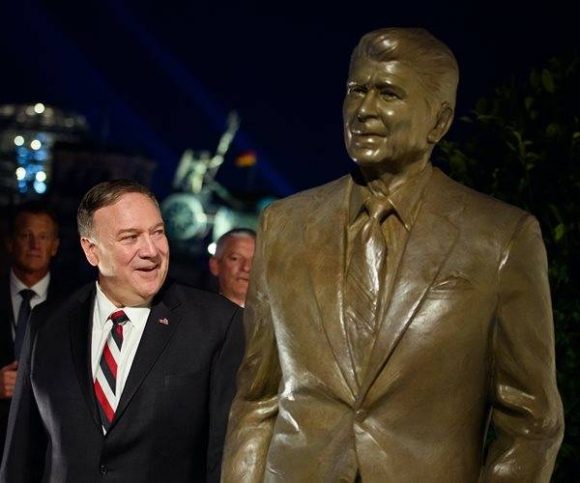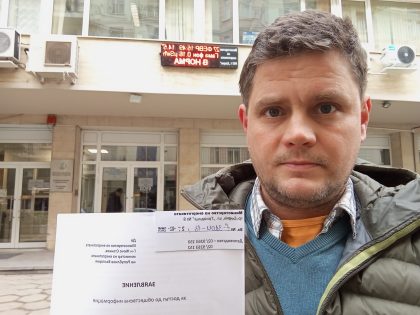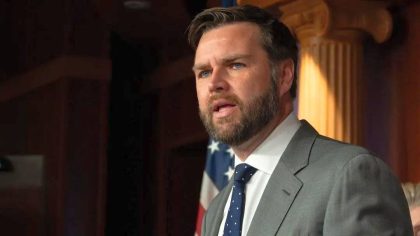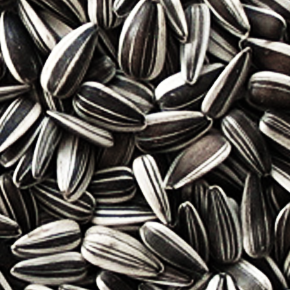Written By Nike Ching (VOA)
Three decades after the fall of the Berlin Wall, the United States said Washington and its allies are still confronting formidable adversaries, and the free world needs to continue to defend against threats from Russia and China.
In a speech near Berlin’s iconic Brandenburg Gate, Secretary of State Mike Pompeo said on Friday that Russia “invades its neighbors and slays political opponents,” adding Russian authorities “use police raids and torture against Crimean Tatars and Ukrainians who are working in opposition to Russian aggression.”
The top U.S. diplomat also took aim at Beijing.
“In China, the Chinese Communist Party [CCP] is shaping a new vision of authoritarianism,” Pompeo told an audience at the Körber-Stiftung Foundation, accusing the CCP of using tactics to suppress Chinese people, denying travel privileges to critics, and harassing the families of Chinese Muslims in Xinjiang who sought refuge abroad.
In Beijing, the Foreign Ministry criticized Pompeo over earlier remarks regarding the Communist Party.
„Pompeo attacked the Chinese political system, rendering the so-called Chinese threats filled with ideological prejudice and the zero-sum game thinking of the Cold War. The Chinese government is expressing strong dissatisfaction and resolute opposition,” said spokesperson Geng Shuang.
Later Friday, during a meeting, German Chancellor Angela Merkel and Pompeo underscored what the two NATO allies can accomplish by working together.
“Today we have other challenges ahead of us, but we remain allies and partners who are dedicating themselves to the problems in the world,” said Merkel, citing conflicts in Afghanistan and Syria, as well as the conflicts between Russia and Ukraine. “Germany wants to play an active role in solving these problems.“
Pompeo praised remarks by Germany Defense Minister Annegret Kramp-Karrenbauer about increasing the country’s military spending and contribution to NATO over time.
“We think that is powerful,” said the top U.S. diplomat.
Pompeo is in Germany this week to mark the 30th anniversary of the fall of the Berlin Wall. On November 9, 1989, the demolition of the Berlin Wall brought to an end to a divided Germany, and was followed by the eradication of communism in Europe, and eventually the fall of the Soviet Union.
Friday, a statue of former U.S. President Ronald Reagan was unveiled at the U.S. Embassy in Berlin. Reagan’s “Tear down the wall” speech at the Brandenburg gate in 1987 had predicted the fall of communism.
1989 was the year that student-led pro-democracy protests centered on Beijing’s Tiananmen Square, with corruption among the elite a key complaint of demonstrators.
Pompeo on Friday drew a distinction between the communist government and the Chinese people, saying, “I wouldn’t characterize it as a conflict between the United States and China,” when asked during a moderated discussion if the two countries are having a new Cold War.
In Hong Kong, as ongoing anti-government protests show no sign of an immediate end, Pompeo said the United States had urged China to maintain its commitment to the citizens of Hong Kong, adding people there will “find their own path forward.”
Pompeo is scheduled to meet with German Chancellor Angela Merkel later Friday. He met with Kramp-Karrenbauer earlier in the day.
When asked how committed the U.S. is to the peace in Ukraine, Pompeo said he had supported giving defensive weapon systems to Ukraine, adding the U.S. had provided the tools they needed to protect themselves from Russia.
“We must recognize that free nations are in a competition of values with unfree nations,” he said.







